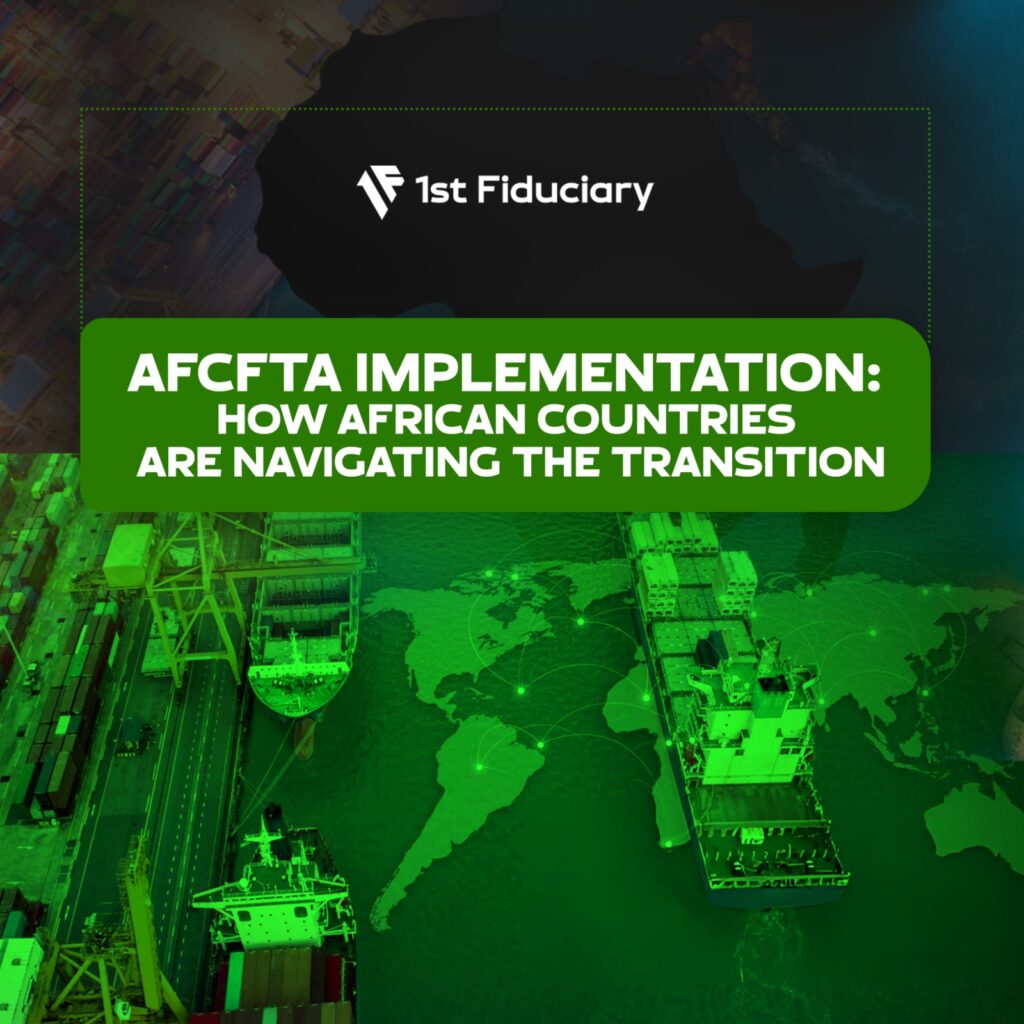AfCFTA Implementation: How African Countries Are Navigating the Transition
African Continental Free Trade Area (AfCFTA) is a flagship program of Agenda 2063 intended to build a single market of 1.3 billion people with a GDP of $3.4 trillion . Since its realization, African nations have been actively adapting to take advantage of the potential benefits of this agreement, though the journey is lined with success as well as challenges.
As of December 2024, 54 out of 55 African countries have signed the AfCFTA agreement, with internal tariff-free transactions commencing among many member states. This widespread participation underscores a collective commitment to enhancing economic unity and fostering political cohesion across the continent.
- Nigeria: As Africa’s largest economy, Nigeria has been leading the pack in its pursuit of the AfCFTA. The government of Nigeria has established the National Action Committee on AfCFTA to coordinate the implementation strategy in the country . It is working towards enhancing trade infrastructure, streamlining customs procedures, and engaging the private sector in preparations for the expected increased intra-African trade.
- Kenya: Kenya has been an eager proponent of the AfCFTA and has made significant strides in aligning its national policies with the agreement. The country has focused on expanding its trade facilitation programs, including port modernization and the launch of digital trade platforms. Kenya is also leveraging its position as a regional hub to attract investments and boost trade with other African nations.
- South Africa: South Africa, with its well-developed industrial base, stands to benefit significantly from the AfCFTA by leveraging its manufacturing strength and trade networks. The government has been working towards enhancing its trade policy and regulations to ensure a conducive environment for business . South Africa is also working with other African countries to develop regional value chains and promote industrial development.
- Ghana: Ghana has been at the forefront of AfCFTA implementation, as it was one of the first countries to ratify the agreement. The Ghanaian government has made developing trade infrastructure, such as roads and ports, a priority and has implemented programs to help SMEs take advantage of the AfCFTA. Ghana is also harmonizing its trade policies with those of other African countries.
- Rwanda: Rwanda has been at the forefront of the AfCFTA negotiations and has taken steps towards preparing itself for the agreement. It has focused on enhancing its trade facilitation measures, including the establishment of a one-stop border post and the utilization of electronic customs. Rwanda is also driving regional integration through initiatives like the Kigali International Financial Centre.
